Happy Monday! Welcome to the first edition of Dispatch Politics on The Dispatch’s new website. We believe this is what coveted voters ages 18-34 call a “glow up.”
Up to Speed
- President Joe Biden gave multiple speeches to black audiences Sunday. His first stop was a commencement address at Morehouse College, a historically black university in Atlanta, where he made an appeal to the graduates and their families focused on democratic values. The second was at a dinner for the Detroit branch of the NAACP, where the president said Donald Trump was “running for revenge.” Biden’s weekend activity is part of his campaign’s plans this month to focus on turning out minority voters in swing states.
- Trump’s campaign accepted two more debates late last week, one with Biden hosted by NBC and Telemundo, and another on Fox News between Vice President Kamala Harris and Trump’s to-be-determined running mate. The Biden campaign, however, rejected both of those proposed contests, holding to the CNN and CBS debates both campaigns had previously agreed on. The Biden campaign last week accepted a vice presidential debate with ABC, but the Trump campaign did not.
- Republican Rep. Elise Stefanik of New York, a possible contender to be Trump’s running mate, became belligerent when Fox News Sunday host Shannon Bream asked her about a New York Times report from 2022 that said she had flip-flopped from first criticizing the former president to supporting him. “It’s a disgrace that you would quote the New York Times with nameless, faceless, false sources,” Stefanik told Bream. Despite evidence she had been critical of him, Stefanik insisted that she had long been supportive of Trump since 2016.
- With the retirement of filibuster defenders Sens. Joe Manchin of West Virginia and Kyrsten Sinema of Arizona, Democrats are gearing up to end the 60-vote threshold for most legislation if they hold the Senate majority this fall, NBC News reported. Incumbents on the party’s left wing such as Sen. Jeff Merkley of Oregon are calling for the rule change, with even more centrist lawmakers like Sen. Mark Kelly of Arizona appear open to it as well. Democratic candidates running for open seats have also said they support the change. Meanwhile, many Republicans have said they are opposed even if the GOP flips the Senate, although Trump, who has previously pushed for doing away with the filibuster, may pressure them to change their minds.
- In other Senate news, Republican Sens. Ted Cruz of Texas and Katie Britt of Alabama announced in a Wall Street Journal op-ed Sunday that they would introduce a bill prohibiting states from banning in vitro fertilization (IVF) lest they lose their federal Medicaid funding. “Our bill doesn’t impede states from setting up health and safety standards to govern IVF, nor does it compel any individual or organization to provide IVF against its wishes or beliefs,” they wrote. “It simply ensures that access to IVF is fully protected by federal law, as there is currently no such federal law in place.” The announcement of the bill comes as Republicans have attempted to distance themselves from restrictions on the procedure amid Democratic attacks.
RFK Jr. Stirs Faithful Base Interested in Alternative Issues
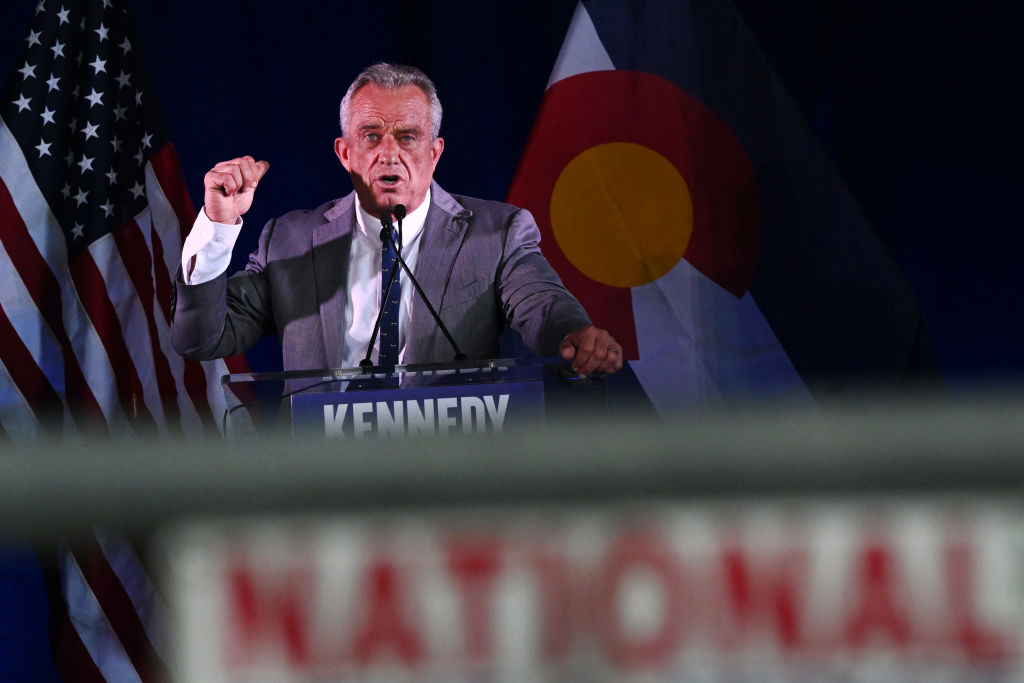
AURORA, Colorado—Robert F. Kennedy Jr. delivered a grievance-consumed, platitude-packed stemwinder to a standing-room-only crowd of roughly 1,200 passionate supporters Sunday, touching mostly on niche concerns with some mainstream issues sprinkled in.
The independent presidential candidate’s address here in suburban Denver lasted approximately 50 minutes and covered frustrations with his exclusion from the upcoming presidential debate; Democratic National Committee and Republican National Committee moves to block him from the ballot; the media’s supposedly deliberate downplaying of his standing in public opinion polls and description of his candidacy as a spoiler; and his general perception that both President Joe Biden and presumptive Republican nominee Donald Trump are unfairly snubbing his campaign.
Kennedy argued Americans’ Seventh Amendment rights to a trial by jury are being violated; claimed the Central Intelligence Agency is a bigger threat to the United States than the Chinese government; warned artificial intelligence poses imminent dangers; railed against the “food pyramid” and advocated protecting “our soils”; maintained corporations and a “war machine” are colluding with corrupt Washington bureaucrats to enrich themselves at citizens’ expense; and declared that the “chronic disease epidemic” is the “greatest crisis we currently face.”
“Do you want a president who’s thinking about these issues?” Kennedy asked a transfixed crowd that cheered affirmatively and did not thin out despite the candidate taking the stage later than advertised. The delay was to accommodate late arrivals who continued to pour in after the scheduled 3 p.m. start time. Topics Kennedy did not focus on? Inflation and sticker shock at the gas pump, which typically top polls of voters’ priorities.
Sabrina Garvin, a homeschool mom of two kids ages 8 and 10 and who plans to vote for Kennedy gave his speech rave reviews. “I thought it was awesome,” she said. (Garvin, who said she was in her early 40s, declined to say whom she supported for president in 2016 and 2020, only that she was “depressed” when Biden and Trump emerged as their parties’ presumptive nominees.)
“My favorite parts were just when he talked about, just who is working against him to keep him quiet and all of the things at play—like CNN not allowing him to participate in debates,” Garvin added. She also praised Kennedy’s focus on food safety. “We’re seeing higher cancer rates, illnesses, that’s real. I see it in my community and it’s not being talked about on the political stage and I think that is so important,” she said.
Like most voters Dispatch Politics interviewed here, Garvin is convinced the 70-year-old former Democrat and scion of the Kennedy family can win in November. To do that, he needs—at a bare minimum—to obtain ballot lines in enough states to compete for 270 Electoral College votes, an uncertain prospect. Kennedy insisted it’s going to happen.
If it does, national polling and battleground state surveys suggest he could impact the outcome, even in defeat. Then again, it’s unclear how many voters are aware of Kennedy’s positions on key issues—even among those who, like so many, might give the independent contender a look because they are disappointed with Biden and Trump. During his speech, Kennedy did discuss a few common issues. He opposes the $61 billion in military aid to Ukraine recently approved by Congress and described the exploding federal debt as an “existential” threat to the country.
Kennedy was light on details. He did not offer many policy proposals for reducing the debt, nor did he express any desire to help Ukraine repel the unprovoked invasion by Russia that has American allies in Europe worried they could be next. Pressed during a news conference after the campaign rally, Kennedy said his plan for balancing the federal balance sheet is to slash defense spending. All military aid to Kyiv would cease under his administration, he confirmed, while strongly signaling that military aid to Taiwan, whose sovereignty is threatened by a potential invasion by China, would also cease.
Kennedy said he would seek to close hundreds of U.S. military bases around the world and would not commit to keeping American troops in South Korea, Japan, or Europe. “I’m going to cut the military budget dramatically,” he said. Spared from his planned American retrenchment is Israel, Kennedy said. A Kennedy administration would continue supporting the Jewish state with offensive as well as defensive arms, he explained.
“Military aid to Israel would continue,” Kennedy told reporters. “I would cut Ukraine aid. I would deescalate our war with China. I think China does not want a hot war with us, it wants to dominate the globe and it wants to do that with economic power and I’m not scared about competing with China.” Pressed for more specifics on a U.S. commitment to shielding Taipei from Beijing’s aggression, Kennedy responded: “I would deescalate our tensions with China.”
Kennedy insisted transparency is key when asked about plans for spending cuts or revenue increases to shrink the debt: “I’m going to use AI and other methods to identify waste in government and to make all of our government expenditures completely transparent for the American people so that we can involve them in identifying waste.”
Nevada Democrats: Worried but Not Panicked
LAS VEGAS—Democratic activists gathered in Nevada for a biennial state party convention conceded their high anxiety about the election, but they also expressed faith President Joe Biden would eke out a victory against Donald Trump in this crucial 2024 battleground.
Trump leads Biden by more than 6 percentage points in Nevada polling averages—a significant advantage for the former president in a swing state where victory is usually as thin as a razor’s edge and where he lost by a mere 2.4 points in 2020. In conversations Saturday with delegates to the Nevada Democratic Party convention, “fear” of a second Trump administration was palpable, even as they dismissed polls as unreliable and recent surveys in particular as flat out wrong.
“It’s bull—, it really, really is,” Steven Clair, 77, said, when Dispatch Politics asked him about the polls. Biden, he added, “absolutely can win Nevada. He absolutely will win Nevada.”
And yet within the same discussion, Clair—who is black and was sporting a Vietnam War veteran baseball cap—acknowledged that he is “detecting warning signs” that could imperil the president in Nevada, which he described as general lack of engagement and interest in the November election among Democratic voters broadly. “They’re just lukewarm right now, and that’s my main concern,” he said.
Most convention delegates walked this rhetorical tightrope. They admitted Biden faces political hurdles that could make Trump the first Republican nominee to win Nevada since George W. Bush defeated Democrat John Kerry here in 2004. They also insisted their state would again be fool’s gold for the GOP, as it has been for 20 years in most White House and U.S. Senate contests. (In the closing weeks of the 2022 midterm election, Sen. Catherine Cortez Masto trailed Republican challenger Adam Laxalt by 3.4 points in the final RealClearPolitics polling average. The Democratic incumbent won by 0.9.)
Other party activists who spent a warm desert Saturday inside the air-conditioned confines of the vast MGM Grand Conference Center just off the Las Vegas Strip were more candid in their assessments of the Biden-Trump rematch. Nick Beer, 64, in a short speech pitching his reelection to the Clark County Democratic Party executive board, called Nevada the “swingiest of swingy states,” and did not question polls showing Biden and Vice President Kamala Harris behind.
“We have to catch them up,” Beer told fellow Democrats. Afterward, we asked Beer if he truly believes Biden is going to have to come from behind to win Nevada’s six Electoral College votes on November 5. “We have work to do, to win,” he said. Could Trump win Nevada? “It’s a scary thought. We have work to do, particularly among decline-to-state voters, no party preference voters. We have to get those people to the polls.”
Stubbornly high inflation and the scarcity of affordable housing, a big Nevada issue, are frustrating Biden’s bid for a repeat victory here, say Republican operatives in the state who regularly review private polling.
But the president has one unmistakable advantage: a sophisticated voter turnout operation that is fully funded and fully staffed with enthusiastic volunteers already knocking on doors and making phone calls to targeted voters. As we’ve reported, the Republican National Committee and the Trump campaign have yet to deploy a ground game in Nevada or anywhere else—yet. The urgency of maintaining this edge was an underlying theme in a series of Democratic officials’ pep rally-style speeches to the Nevada convention.
“We can mock them all we want,” Democratic National Committee Chairman Jaime Harrison said, referring to Trump and the Republicans. “But we still have to take them seriously.” Rep. Nancy Pelosi of California, the former two-time speaker of the House of Representatives who delivered the convention keynote, described the importance of the Democrats’ get-out-the-vote program in equally stark terms. “We have to own the ground to win the election.”
If anything is a consensus source of comfort to nervous Nevada Democrats, it’s their agreement that they are poised to wallop the Trump campaign in the competition to identify, target, and turn out voters. In Nevada, where the race is close and statewide contests are often decided by narrow margins, that could make all the difference.
“It’s very close—and that’s scary; it’s scary. But we haven’t done our work yet,” said Donna West, 67, of East Las Vegas, who leads the Nevada Democratic Party’s senior caucus and has been knocking on doors here since President Barack Obama’s 2008 campaign. “I remember what we can build and how we can turn out voters, and that’s what keeps me going in spite of my worries.”
Notable and Quotable
“I’m gonna demand a drug test too, by the way. I am, no I really am. I don’t want him coming in like the State of the Union, he was high as a kite.”
—Former President Donald Trump, speaking about conditions for debating President Joe Biden, at the Minnesota Republican Party Lincoln Reagan Dinner, May 17, 2024


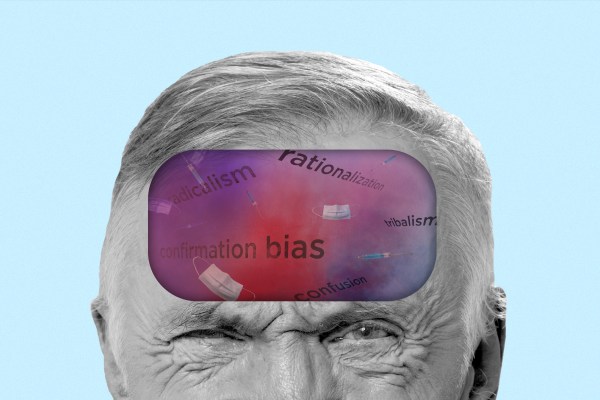
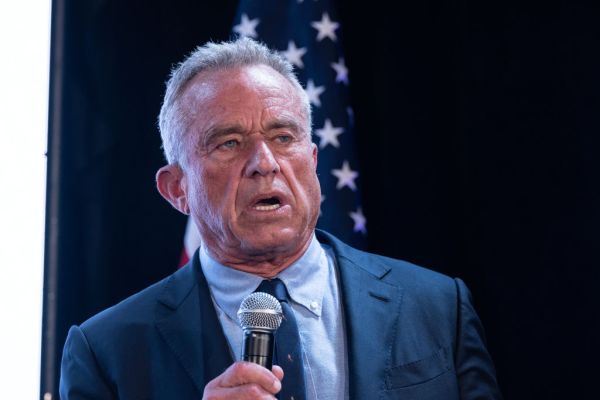
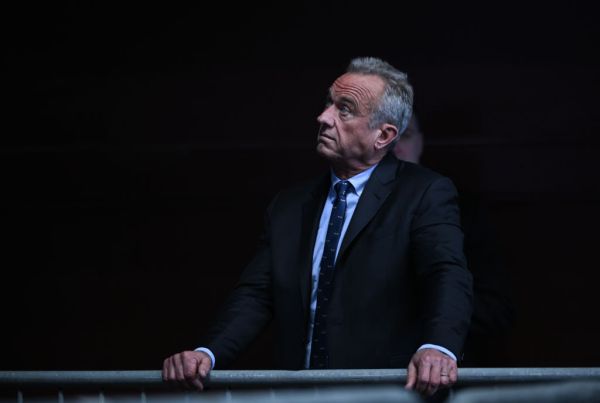

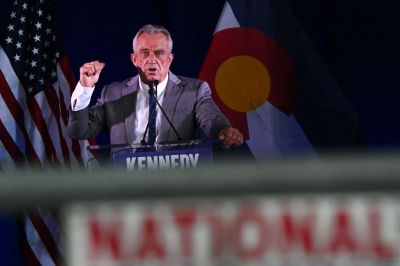
Please note that we at The Dispatch hold ourselves, our work, and our commenters to a higher standard than other places on the internet. We welcome comments that foster genuine debate or discussion—including comments critical of us or our work—but responses that include ad hominem attacks on fellow Dispatch members or are intended to stoke fear and anger may be moderated.
With your membership, you only have the ability to comment on The Morning Dispatch articles. Consider upgrading to join the conversation everywhere.